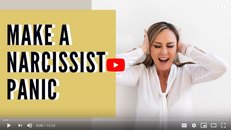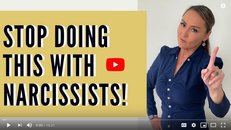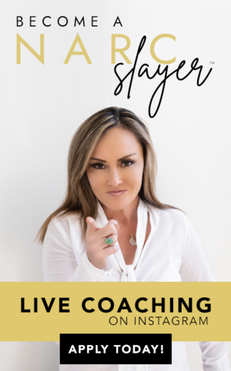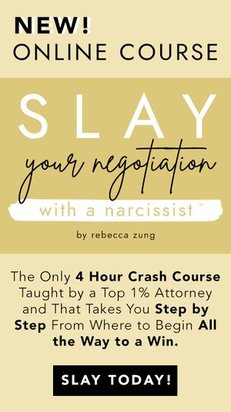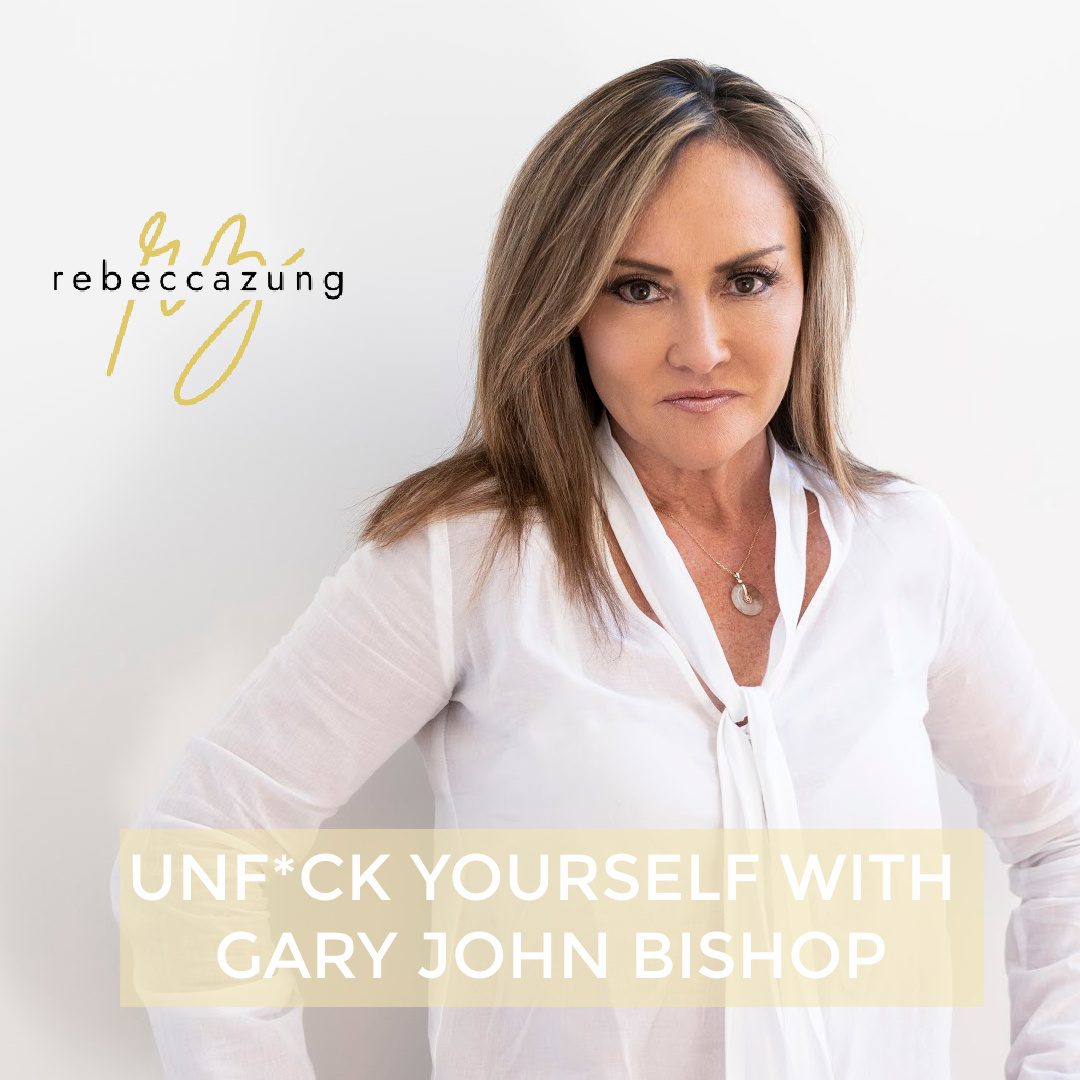
Gary John Bishop, is the New York Times bestselling author of the books Unfu*k Yourself: How to Get Out of Your Head and into Your Life, Stop doing That Shit, and Do The Work. He is a personal development expert and life coach. Around 15 years ago, his career in this field blossomed following a workshop that he reluctantly underwent to help him resolve the overall apathy and dissatisfaction he was. He got insight into how he operates holistically rather than psychologically. He began to feel empowered upon acknowledging certain parts of himself and started to wonder what his potential could be and what the possibilities in his life could be. As he continued on in this journey, he began noticing an increase in his income, an increase in his overall happiness and satisfaction and noticed that he generally had a strong sense of peace of mind. This even furthered and deepened the self-reflective work he was doing. In this interview, I get to ask Gary about his journey, his experience with self-reflection and growth and how to apply it to our own lives.
Tell me a little bit about your journey and your books?
“(After the workshop and lots of self-reflective work), I was led on this pathway where eventually I became a senior program director at one of the world’s largest personal development companies. I traveled all over the world and facilitated workshops to thousands and thousands of people. I did that for a number of years. The last five or six years has been more about myself and my writing and giving away what I’ve been learning and what I’m continuing to learn.”
“Unfu*k Yourself came out when there weren’t really many books around with a curse word in the title, right? I mean, now there’s just so many of them, but at the time there was none. I had so many people tell me, ‘Don’t do it because you won’t be able to advertise it anywhere. Amazon won’t let you advertise it, Facebook won’t let you advertise it.” But I thought (to myself), ‘This has got to be my book. I’ve got to call it what I would call it.’ So I released it myself. I would go on Facebook to talk about it and I’d go on Twitter to talk about it. We ended up selling 30,000 copies in just five and a half months. Before I knew it, I had over 20 offers from major publishers. Off it went, and it’s been following along on that trail ever since.””
“I have a new audio book called Ask Gary Fu*king Anything and I used that curse word because I wanted people to understand that it’s really anything. You could ask me anything and I’ll see if I can take a stab at it for you. I took eight questions in the studio. I never wrote anything. I just went into the studio and answered the questions. This gave me a chance to dive into some philosophy and into how I see things for real-life situations. It was both really challenging but really refreshing. I loved doing it, it was such a great opportunity.”
What is the basis of your philosophy?
“I’m not interested in making you feel better. That is fundamentally at the core of it. It’s based on existentialism which, like phenomenology and ontology, goes around the idea that you are a being in every moment of every day. I’m interested in knowing how you became this way and what is in the way of you becoming something else. This includes all of the changes that one might want to make in life. (This philosophy) gives you really unique insight into the background of people without being psychological about it.”
What differentiates you from other life coaches?
“People talk about my delivery- like I speak the truth or something. What I often find myself saying is the sort of thing that can be uncomfortable listening to because it’s so personal. At the same time, there’s an element of gravitas to it that makes sense. I guess the combination of all of those things gives it my unique little flavor”.
What is ontology?
“Most people these days will talk about their ‘favorite human’ or ‘my human.’ They’re missing the most important part, which is the ‘being’ in ‘human being.’ You are always being something. Being what? Being angry, being resentful, being compassionate, being understanding. Those are ways of being. What is a way of being? A way of being are certain predictable thoughts that you have coupled with an emotional state; then you throw in a mix of some behaviors. As an adult human being, you’ve got very defined ways of being, very predictable and repetitive ways that you “be” in life. When you were a kid, you had a lot more of those (ways of being) available to you. Your general way of being is certainly within a very tight range (of ways of being). There’s a predictable sense of self.
“In ontology, we not only take a look at one’s pathway (to the tight range of ways in which one can be), but also to what one might have missed out on and what is available. We take a look at what might come from going into missed opportunities with courage. This could be a way of being to explore. What would life look like if taken on from with courage? What if life was taken on with love or understanding or compassion? Ontology allows you to shift the context in which one has been throughout life and different circumstances and really participate in life.”
Is understanding how you became to be the way you are the first step of figuring out how to unfu*k yourself?
“In my second book called, Stop Doing That Sh*t, I actually give you a blueprint to figure out how you ended up the way you are. You have to identify three things about yourself that you’ve maybe never thought about…One of them is your view of yourself.”
“If you ask people, ‘What do you think of yourself?’ most people will be fairly positive. They’ll say, ‘I think I’m a good person. I’m decent. I do my best. I’m a hard worker.’ I’ll respond with ‘No, what’s your opinion of yourself in the darkest corner of your mind?’ Then there will be some things that come out. For instance, ‘Well, I don’t think I’m smart enough,’ or, ‘I don’t think I’m good enough.’”
“You weren’t born that way, you ended up that way. You didn’t pop out being like, ‘Oh shit, I’m not smart enough.’ That came to you at some point in life and then embedded itself in you wherever you ended up at. If I’ve concluded something about myself, it never goes anywhere. It rises. It falls. But it never moves. It never leaves me. So if what I’ve concluded about myself is that I’m not smart enough and if I’ve not done the work to uncover that, it’ll drive me in a certain direction. I’ll make decisions based on that without even checking in to see what I’m basing it on.”
How does self-talk relate to your ontological being?
“You’re always talking to yourself about the same stuff. You have the same hooks and the same triggers and the same hangups. You have to try on the idea that you are constantly listening for and looking for evidence that your subconscious view of everything is accurate. So in the background of your mind you’ll have these little triggers like, ‘Oh yeah, I need to remember to do that but I can’t do that so I’m not going to do this.”
“So the noise in the background is shaping your certain view of the world. You have to start checking in on that (noise). You have to ask yourself, ‘What am I saying to myself? What is that based on? Why did I tell myself no instead of yes?’ As you grow that sense of awareness of that automatic little voice in your head, the more you will (unfu*k yourself).”
“I would love to wake up in the morning and have my little voice say, ‘You are amazing.’ It doesn’t! It goes, ‘Oh, shit, here we go again.’ That noise is designed to equip you to survive in the world but the problem is that you’re surviving stuff that you just don’t need to survive. You shouldn’t survive your job. You’re not supposed to survive your marriage. You’re not supposed to survive your body. We end up with these mechanisms that make us exist as if we’re in this kind of internal war. I want people to do the right kind of work in a way that makes sense to them and allows them to get insight into themselves so that they can be free. Ultimately that kind of introspection is really what starts you on your way (to unfu*king yourself).”
So for those who are dealing with a high-conflict personality or narcissist and feel completely beat up and hopeless and as if there’s no way out, how do they start to make shifts surrounding their self-talk and ontology?
“My approach is not going to be the way a lot of people would approach it. Ultimately all I mean to ask is, ‘Can you get free (physically and mentally)? Can you get onto the other side of something?’”
“We say stuff like, ‘I should let something go.’ Everybody says, ‘They’ll have to get over it.’ Sometimes people say, ‘How do I actually get over it? How do I actually get free of something?’”
“For instance, if you’re in a dysfunctional marriage or relationship the way you frame those situations will be how it will live with you. Whatever language you’ve used to frame the situation will be the language you carry around with you. That’s true of all of us, for all of our pasts. Our pasts live on through the kind of language we’ve used to capture it. It only lives on in language. We have an emotional attachment to language. So our emotions will rise and fall with the language we use.”
“Some people will say, ‘This has been the worst day of my life.’ It might not have been. It was probably just a tough day. With that language, you’ll have an emotional state or a way of being that matches that language. One of the first steps is to get really present and to really check in with yourself. ‘What’s the language I’m using to talk about this? Is it empowering me?’”
“You’ve really got to look at what language you’re using and what language I could allow you to be in a better spot for yourself such that you can move on? Sometimes people think this is just semantics but your past lives on in the language you use to describe it. So that’s how it lives on in your life.
“You’ve got to be careful about two things. One, you might have been victimized but it’s incumbent upon you to make sure you don’t become a victim as a way of being. You mustn’t believe that it diminishes who you are as a human being. You can’t keep looking back. None of that will serve you. That will just grind it in you further. One of the worst things I think you can do is turn yourself into the triumphant victim. Because that still lives on.”
“At what point do you say ‘I’m over it?’ That is the answer you really should be looking for. You want to get to the point where you can look at that time in your life and there’s no attachment for you. You don’t experience anything in terms of negativity. It’s important for you to come to terms with the truth. It’s important for you to tell the truth to yourself and be straight with yourself about it. Don’t give yourself permission to use your past to justify your future self. You can’t give yourself permission and tell yourself, ‘That happened so now I’m off the hook for…’ No.”
“One of the things that actually kind of put me on the map a long time ago was a statement that I made online. I said, ‘You have the life that you’re willing to put up with.’ That seems kind of harsh but that’s our big problem as human beings. It’s our willingness to tolerate certain things in our lives, including ourselves, that is ultimately what we’ll be burdened by. We’ll be burdened by whatever it is that we tolerate. We’ll find a way for this (burden) to get expressed in our lives.”
What is the difference between an affirmation and an assertion?
“So some people like affirmations. They work for them so they just love them and use them all the time. I’ve also met a lot of people in my time who just don’t believe in them or the affirmation about themselves at all. The idea of an affirmation is to overcome something about yourself by saying something often enough that it supersedes that thing you are trying to overcome.”
“An assertion begins with acknowledging an initial thought and then asking yourself about that thought. I might say, ‘I don’t think I’m smart enough.’ That might be my initial thought. Then I ask myself, ‘Can I be responsible for that?’ And then I stake a claim for myself that once I make the following assertion about myself, I will act in alignment with that assertion. I acknowledge what’s there. I set it aside. I stake it.”
“In my first book, one of the things that I talked about was willingness. ‘I am willing, right?’ When you start to see life in terms of your willingness and your unwillingness, your life is no longer circumstantial. You’re actually opening up to the idea that you have a say in how you’re going to take life on. That’s the beginning of all great transformations. It begins with realizing that you have a say. You have a say in your own experience. You have a say in your level of commitment, your level of happiness, and your level of joy. It’s not always easy but you always have a say. You can grow from there. You can become much more powerful with your experience.”
“An interesting thing to me is that when you ask someone about the notion of self-limiting beliefs, you don’t actually know your own self-limiting beliefs. You can see somebody else’s but not oneself. All of that is wrapped up in language. Language captures life. It captures experiences. It captures objects and time of the day and time of the year.”
So you have seven powerful assertions you use to un-fuck yourself. Can you give us some of your favorites?
“One that serves me almost every day in my life is the assertion that: I expect nothing and I accept everything. People sometimes hear that and they’re like, ‘Oh my gosh, what a doormat.’”
“One of the things that I did notice in my life a long time ago was the kind of degree to which I was hooked by my own expectations. When things didn’t live up to my expectations, I would get derailed. Over time, I’ve become much better at seeing my expectations and setting them aside so that I can just be with life the way that it is. Starting to key into some of your expectations is a pretty big deal.”
“The other part of that (assertion) is: I accept everything. People think that if I accept something it means that I’m not going to change it. It actually means that I’m no longer emotionally charged around it. I might still act to change that thing but I’m not going to be run by it emotionally. I accept it for the way it is.”
“Awareness is a really profound awareness of oneself. It’s not like there’s a destination. I get a little more aware of myself because I believe that every time I uncover a little something more about myself, it gives me an opportunity to push in a little bit more into the unknown, the expanse of my own humanity, and to really experiment with the human being that I am.”
CONNECT WITH GARY










